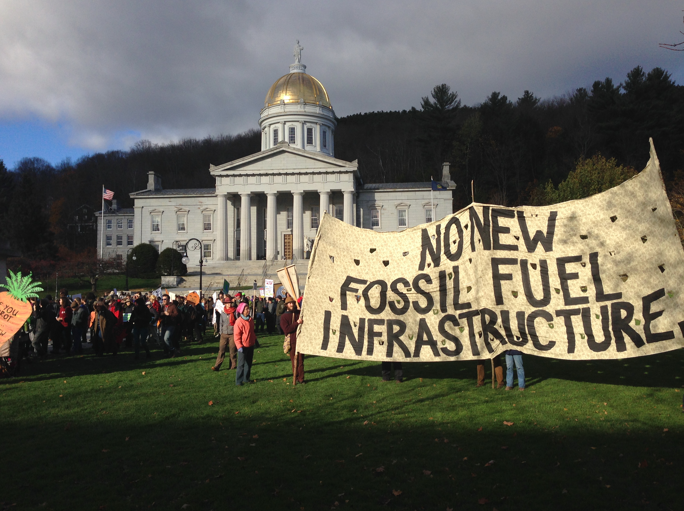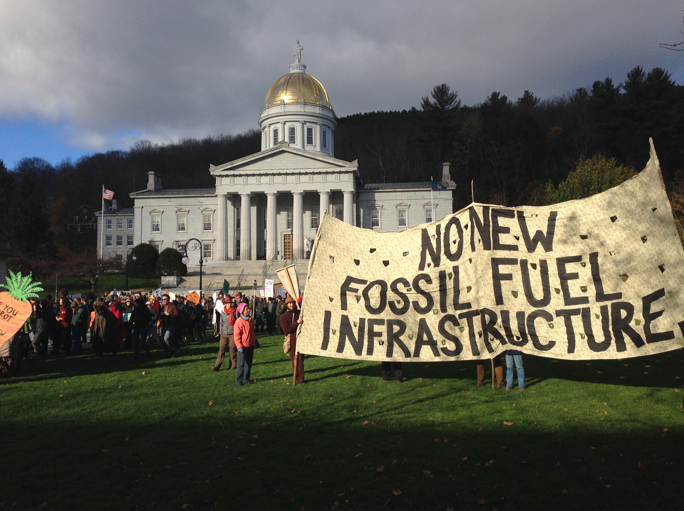
LYNDONVILLE — The Lyndon State Psychology and Human Services department will be hosting an event, “The People versus Big Oil: How Local Democracy Stood up to the Fossil Fuel Industry,” on November 19, at 6:00 p.m. in the Moore Community Room at Lyndon State College.
This event will provide critical information about the Montreal-Portland oil pipeline which passes through the Northeast Kingdom, and the threat that would be presented to our communities if the pipeline carries tar sands in the future.
The Portland-Montreal Pipeline runs through a number of our local watersheds including the Missisquoi River, Black River, Barton River, Passumpsic River, Upper Connecticut River, Clyde River, and Lamoille River. The pipeline also travels through the following towns in the Northeast Kingdom: North Troy, Jay, Newport, Irasburg, Barton, Burke, Sutton, Victory, Lunenberg, and Guildhall. These towns and watersheds could be at risk if leaks or seepage from the pipeline occurred.
In addition, members of Maine’s Protect South Portland’s project will discuss the passage of their “Clear Skies Ordinance” and the powerful and successful grassroots efforts to stop the flow of tar sands into Portland. Featured speakers include Bob Klotz of 350 Maine, Eben Rose of Protect South Portland, KC Whiteley, 350 Vermont board member and a VT delegate to the Healing Walk in Alberta, Canada, and Jade Walker from 350 Vermont.
Tar sands oil, or bitumen, is an almost solid substance that is a combination of sand, clay, water, and bitumen. It is a thick, heavy oil that needs thinning in order to be transported. After it’s mined or drilled from the earth, by pumping steam and chemicals into the ground, the bitumen is blended with natural gas liquids or other light petroleum products that contain the carcinogens benzene, toluene, and xylene.
Due to the corrosive nature of the tar sands and chemicals used in the extraction process, there is a higher risk of eroding the transport pipe liners which could lead to leaks resulting in significant environmental damage.
Tar sands transported through the United States by way of pipelines from Canada have had leaks in the past. In July, 2010 a tar sands oil pipeline in Kalamazoo, MI burst and poured 877,000 gallons of tar sands oil into 35 miles of the Kalamazoo River. After over one billion dollars in clean-up costs to Enbridge Energy the river is still unsafe.



